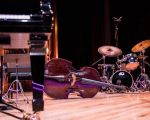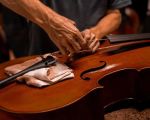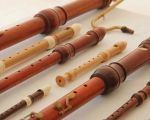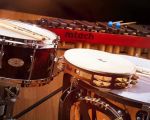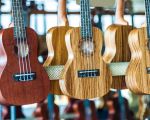- 1-understanding-the-vintage-instrument-market
- 2-best-online-marketplaces-to-sell-vintage-instruments
- 3-specialty-shops-and-auctions-for-vintage-music-gear
- 4-pricing-strategies-for-vintage-instruments
- 5-success-stories-selling-vintage-instruments
- 6-getting-started-with-beat-trigger
Understanding the Vintage Instrument Market
Selling vintage musical instruments requires insight into the niche market of collectors, musicians, and enthusiasts. Where to sell vintage musical instruments is a common question because these pieces often have unique value based on brand, age, condition, and rarity. Understanding current trends and demand helps sellers position their instruments effectively.
For example, vintage guitars from brands like Fender and Gibson consistently attract buyers seeking authentic tone and craftsmanship, while rare keyboards or brass instruments appeal to specialized collectors. Being aware of your instrument’s market niche is the first step toward successful selling.
Best Online Marketplaces to Sell Vintage Instruments
The internet offers several platforms tailored to selling vintage musical gear:
- Reverb: Popular among musicians, Reverb specializes in musical instruments and provides seller protections and a wide audience.
- eBay: Offers auction-style and fixed-price listings, ideal for rare items that may attract competitive bidding.
- Craigslist and Facebook Marketplace: Useful for local sales and quick transactions, though with less specialized reach.
Specialty Shops and Auctions for Vintage Music Gear
Some sellers prefer consigning their instruments to specialty shops or auction houses, which can provide expert appraisal and targeted marketing. These venues often attract serious collectors willing to pay premium prices. Working with a trusted dealer or auction house also adds credibility and can ease the selling process.
Beat Trigger, for instance, connects sellers with vetted buyers and offers expert advice to maximize instrument value through professional presentation and marketing strategies.
Pricing Strategies for Vintage Instruments
Setting the right price involves balancing market demand with instrument condition and provenance. Research similar listings and recent sales to gauge competitive pricing. Transparency about wear and authenticity builds trust with buyers.
Offering detailed photos and descriptions can justify higher prices and attract serious inquiries. Flexibility with negotiations also often helps close deals faster without undervaluing your instrument.
Success Stories Selling Vintage Instruments
One seller shared how listing a 1960s vintage Fender Stratocaster on Reverb led to a quick sale above the asking price after professional photos and a detailed history were included. Another musician sold a rare trumpet via a specialty auction, achieving a record price due to the auction house’s marketing efforts.
These stories illustrate how thoughtful selling strategies and choosing the right platform can make a significant difference in outcomes.
Getting Started with Beat Trigger
If you’re wondering where to sell vintage musical instruments and want expert support, Beat Trigger is an excellent starting point. Their platform provides resources, market insights, and connections to serious buyers, streamlining the process for sellers of all experience levels.
Visit Beat Trigger to explore options, list your instruments confidently, and achieve the best value for your vintage musical gear.


